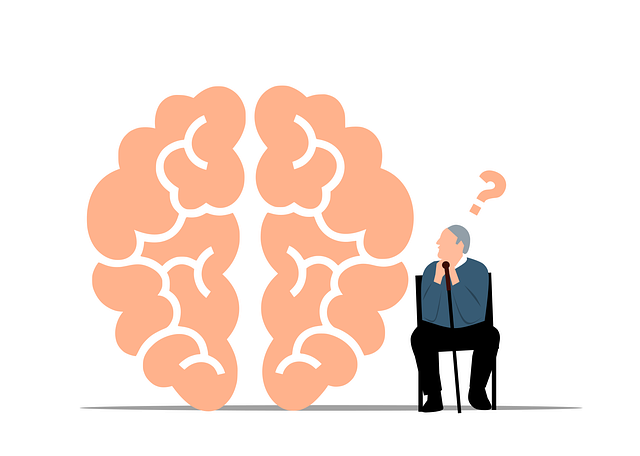Civil commitment, a legal process for confining individuals with severe mental illnesses who pose risks to themselves or others, balances treatment and individual freedoms through court proceedings. Individuals have specific rights during this process, including consultation with legal counsel, informed consent, and privacy/confidentiality, ensuring active participation in care. Legal professionals play a crucial role in protecting these rights in mental health cases, navigating complex legal frameworks, and advocating for balanced approaches that respect civil liberties while maintaining public safety. This system prioritizes recovery, dignity, and access to quality treatment, fostering a healing environment and supporting community reintegration.
“In the intricate landscape of mental health law, comprehensive legal services for civil commitment matters are paramount. This article delves into the critical aspects of understanding civil commitment—a legal framework designed to protect individuals during mental health crises. We explore the fundamental rights guaranteed to those facing such challenges and navigate the complex legal process from initial assessment to court proceedings. Additionally, we highlight the pivotal role of legal professionals and discuss ethical considerations that foster recovery and dignity in these sensitive cases.”
- Understanding Civil Commitment: A Legal Framework for Mental Health Cases
- The Rights of Individuals in Mental Health Crises
- Navigating the Legal Process: From Assessment to Court Proceeding
- Role of Legal Professionals in Civil Commitment Procedures
- Supporting Recovery and Dignity: Ethical Considerations in Mental Health Law
Understanding Civil Commitment: A Legal Framework for Mental Health Cases

Civil commitment is a legal process that involves confining an individual for treatment in a psychiatric facility when they pose a danger to themselves or others due to severe mental illness. It’s a crucial aspect of the broader mental health landscape, ensuring that individuals with serious psychiatric disorders receive necessary care while balancing their rights in mental health cases. This framework operates within a legal structure designed to protect both the individual and society, offering a balance between treatment and freedom.
The process typically involves court proceedings where a petition is filed, evidence is presented, and a judge determines whether the person meets the criteria for civil commitment. The focus is on ensuring that all rights in mental health cases are respected while providing appropriate care. This approach is distinct from criminal commitment, emphasizing non-punitive measures and treatment as the primary goal, rather than punishment.
The Rights of Individuals in Mental Health Crises

In mental health crises, individuals often find themselves vulnerable and with limited capacity to make decisions for themselves. It’s crucial to understand that they possess fundamental rights designed to protect them during such times. These rights ensure that people receive fair treatment and proper care while navigating the complexities of civil commitment proceedings. One key right is the ability to consult and communicate with legal counsel, ensuring they can mount a robust defense or provide guidance in understanding their options.
Additionally, individuals have the right to informed consent, meaning they should be clearly aware of the nature of the crisis, the potential consequences, and any available alternatives. This empowers them to participate actively in decisions regarding their care and treatment. Moreover, privacy and confidentiality are paramount; sensitive information related to mental health must be handled with discretion to protect the individual’s dignity and personal life.
Navigating the Legal Process: From Assessment to Court Proceeding

Navigating the legal process for civil commitment involves a series of careful steps, ensuring that all aspects of a person’s rights in mental health cases are protected and considered. The initial stage begins with a thorough assessment by qualified professionals who evaluate an individual’s mental state and determine if they meet the criteria for civil commitment. This critical step ensures due process, as it provides a clear understanding of the person’s condition and the legal basis for further action.
Once the assessment is complete, legal representatives can file the necessary paperwork in court. Here, they advocate for their client’s rights, presenting evidence to support the need for civil commitment. The court proceeding itself demands meticulous preparation, as it involves complex legal arguments and a deep understanding of mental health laws. This process guarantees that individuals receive fair treatment, ensuring their rights are upheld throughout the entire civil commitment journey.
Role of Legal Professionals in Civil Commitment Procedures

In civil commitment procedures, legal professionals play a pivotal role, ensuring that the rights of individuals in mental health cases are protected and upheld. They navigate complex legal frameworks to ensure fair treatment, providing critical support to both the committed individual and their family members. These professionals guide clients through every stage, from initial assessments and court appearances to post-commitment care and discharge planning.
Attorneys specializing in this area advocate for a balanced approach, balancing the need for public safety with the preservation of civil liberties and due process rights. They meticulously examine evidence, challenge inappropriate commitments, and ensure that the commitment process adheres to strict legal standards, thereby fostering a more just and compassionate system for those facing mental health challenges.
Supporting Recovery and Dignity: Ethical Considerations in Mental Health Law

In the realm of civil commitment, where individuals with mental health conditions are involved, it is paramount to prioritize both recovery and uphold dignity as core ethical principles. Mental health law must ensure that the rights of those under commitment are respected, fostering an environment conducive to healing and rehabilitation. This involves providing comprehensive legal services that navigate complex regulations while advocating for individualized care plans.
Ethical considerations demand a delicate balance between restrictive measures necessary for safety and the preservation of personal autonomy. By recognizing the inherent dignity of every individual, regardless of their mental state, legal frameworks can promote recovery-oriented practices. This includes supporting access to quality treatment, ensuring informed consent, and facilitating community reintegration, all while upholding the rights in mental health cases as a cornerstone of just and effective commitment procedures.
